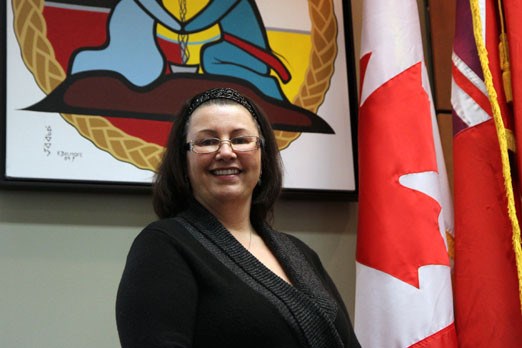THUNDER BAY – Hearings continued Wednesday into a local Justice of the Peace who was found to have engaged in judicial misconduct when she intervened in proceedings involving a family member.
A panel of three judges will determine the consequences applied to Justice of the Peace Anna Gibbon, after the disposition hearing in her case reconvenes for a second day on May 24. That could range from ordering an apology to a recommendation for removal from office.
The panel, consisting of Timothy Lipson, Holly Charyna, and John Tzanis, concluded in a February ruling Gibbon committed misconduct when she intervened in her son’s Highway Traffic Act proceeding.
Gibbon called the prosecutor to discuss the case, invited two out-of-town Justices of the Peace to her home for dinner on the same day her son was to appear in conflict court, and asked the Regional Senior Justice of the Peace to have the charge against her son withdrawn or stayed, the panel concluded.
Presenting counsel Linda Rothstein argued Wednesday that failing to appropriately discipline Gibbon could damage public faith in the judicial system.
Eugene Bhattacharya, counsel for Gibbon, said his client had acknowledged her behaviour, presenting two draft letters of apology she had written.
Gibbon has also offered to participate in a healing circle process.
Rothstein questioned whether Gibbon had shown true remorse for her actions, saying she continued to deny she had exploited her position and had continued to contest evidence from several witnesses in the case.
“When you look at what previous panels have said constitutes a complete acknowledgement, there wasn’t at any point until your decision anything approaching a complete acknowledgement of wrongdoing,” Rothstein said.
Instead, Rothstein argued Gibbon continued to frame herself as the party that has been wronged in the episode, saying her testimony was “replete with self-justification.”
She also questioned why Gibbon had prepared draft letters of apology for only two people, saying her behaviour had put other justices and staff in difficult positions.
The draft apologies themselves also fell short, she charged, saying they seemed more concerned with justifying Gibbon’s behaviour than expressing regret.
“This isn’t a checklist that you can say okay, I’ve drafted a letter of apology,” she said. “It really has to be meaningful.”
Gibbon had an excellent record of service prior to this issue, Rothstein acknowledged, calling it unfortunate “something really went off the rails.”
Rothstein questioned Gibbon’s offer to participate in a healing circle, saying the other parties may not agree, and arguing it could be inappropriate as Gibbons’ conduct has not been connected to her experience as an Indigenous person.
Rothstein further argued Gibbon's experience as an Indigenous person should not be heavily weighed by the panel as a mitigating factor.
Defense counsel for Gibbon had argued her experiences as an Indigenous person in the community resulted in her having concerns for her son and how he was being treated by the justice system.
“Yes, you can completely know and understand that, and it will help you understand how angry she became… but I’m not sure it can go much further than that,” Rothstein said.
Partway through the hearing Rothstein also raised the issue of a text Gibbon allegedly sent to regional senior justice of the peace J.A. Bernard Caron earlier Wednesday.
In it, Gibbon expressed she would not return to work at Provincial Offences Act court in Thunder Bay, writing “it’s not a safe environment for me to return to,” according to Rothstein.
“All I can say to the panel is that raises a host of concerns about the level of insight and remorse that Her Honour currently manifests,” she said.
“It’s not a time to come and say ‘I won’t work here’ or I want that” – It’s a time of deep humility,” she later said.
Judge Timothy Lipson asked that the text be entered as an exhibit.
Bhattacharya said there was “a context” surrounding the text, and promised to provide a letter from Gibbon’s doctor explaining the circumstances of her potential return to work in Thunder Bay.
Potential consequences resulting from the findings of judicial misconduct could involve Gibbon facing a warning, a reprimand, be ordered to apologize, suspended with pay for any period of time, suspended without pay for 30 days, or a recommendation to the Attorney General that she be removed from office.
Gibbon was appointed as Justice of the Peace for the Ontario Court of Justice in 2013 and previously served as the city of Thunder Bay’s first Aboriginal liaison.
The judicial conduct hearing was convened in January 2021. Evidence was presented throughout the summer of 2021 before concluding in November.
